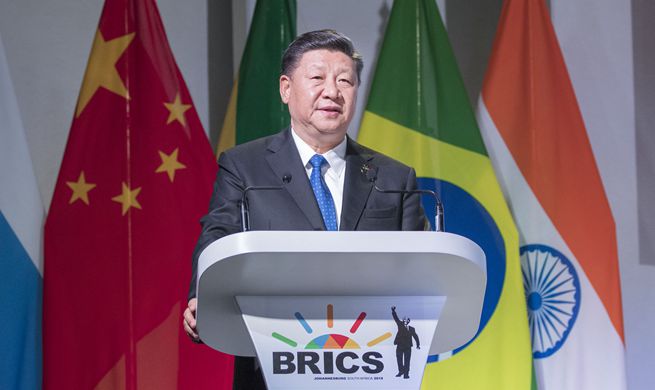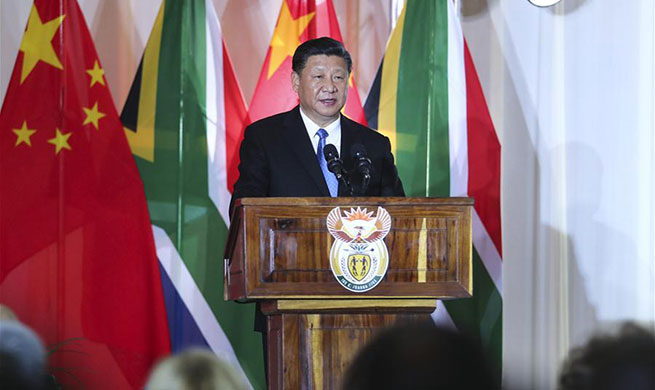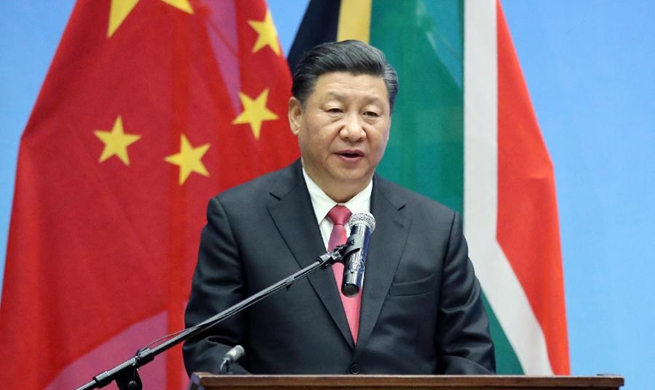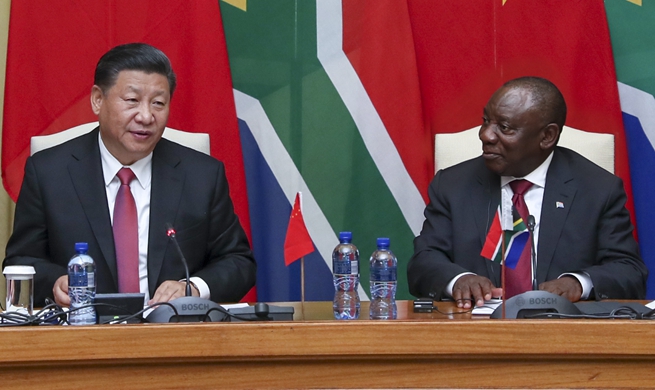BRUSSELS, July 25 (Xinhua) -- Amid brewing trade tensions between the United States and the European Union (EU), Jean-Claude Juncker, the European Commission president, is visiting Washington Wednesday in a bid to persuade the White House to change course.
The key question to judge the outcome of his visit is whether U.S. President Donald Trump will follow up his threat to introduce custom duties for European cars, Gerhard Stahl, a visiting professor at the College of Europe in Bruges, Belgium, told Xinhua.
The EU pundit saw the visit as a follow-up to the G7 meeting in Canada in June, which failed to quell the transatlantic spat over trade.
Asked about his expectation on the visit, Stahl said: "this discussion should help President Trump understand better the EU-position for a rule-based international system and an open international economy."
"It should also help address the weaknesses of the current WTO system. The discussions should focus on ideas on how to improve the world trading system without taking unilateral protectionist measures," added Stahl, warning that U.S. unilateral behavior creates the risks of harmful trade wars.
However, citing a study of International Monetary Fund (IMF), the professor said the United States, in comparison to other major powers, will be most affected by the negative consequences of a trade war.
Stahl, also a former secretary general of the European Committee of the Regions, believed that the EU is in a position to defend its interests but is in no mood to aggravated the condition.
"The interest of the delegation of President Junker is not to increase tensions, but hopefully to find some common grounds for the future development of the world trade system, assuming that a dialogue with the Trump administration might become easier after the November U.S. mid-term elections," he said.
He stressed that Trump's "America First" policy, which intends to replace the rule-based international system by increased national competition and bilateral agreements, is against the policy orientation of the EU, a strong supporter of the international world trade system and international agreements.
As long as the U.S. government is following protectionist policies, the EU has to look for other partners to defend an open international economy, he noted.












